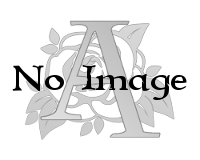Difference between revisions of "Post Exodian"
(→Family Structure) |
(→Assorted Info) |
||
| Line 103: | Line 103: | ||
=Assorted Info= | =Assorted Info= | ||
| − | [[category:Cultures]] [[category:Human Cultures]] [[category:Post | + | [[category:Cultures]] [[category:Human Cultures]] [[category:Post Exodian]] |
Revision as of 01:55, 8 July 2019
| Post Exodian | |
|---|---|

| |
| Culture | |
| Pronunciation | Poe-st-ex-oh-dee-an |
| Nicknames | Exodians |
| Origins | Exodia |
| Races | Human |
| Emphasis | Aristocracy, Gender Equality, Economics |
| Languages | Common |
| Major Cities | Rivera, Redemption City, Battalia, Fairwind Harbor |
The post exodian culture has it's roots in the original exodian culture present throughout most of humanity during the Exodian Era. While some elements of the original root culture have survived centuries of change and diversification, the vast majority of traditions and customs held by the original exodians have been replaced with contemporary ones. Despite being officially known as the post exodian culture, most will refer to it simply as exodian culture.
Contents
History
Society
Naming Customs
Post exodian naming customs have deviated considerably from the original exodian root names. Most modern post exodians have a first, middle, and last name. There are some people who still use ancestral root names, but the ancestral tradition of only using a first and last name has long since faded in favor of the new three name format. Typically only aristocracy and royalty use ancestral root names, even then it is a rapidly declining practice and is considered archaic and out of style. Here are some examples of each naming convention:
Male (Contemporary)
- Edward
- James
- William
- George
- Charles
- Louis
- David
- Thomas
- Michael
- Jack
Female (Contemporary)
- Alice
- Elizabeth
- Lillian
- Elodie
- Mary
- Lucy
- Emily
- Jane
- Susan
- Jessica
Last Names (Contemporary)
- Smith
- Seymour
- Black
- Briggs
- Clark
- Williams
- Armstrong
- Alexander
- Hughes
- Dawn
Male (Root)
- Ezra
- Jecht
- Heth
- Oriss
- Artoss
- Maerik
Female (Root)
- Ishtar(a)
- Vesta
- Yunalesca
- Hestia
- Lumina
- Aurora
Last Names (Root)
- Aurelis
- Zanaris
- Athis
- Thantis
- Jethis
- Eris
Family Structure
The post exodian family structure is basic compared to many other cultures. Every family consists of a mother and father, with typically one to three children. The father is usually the head of the household but the mother might assume family leadership in the father's absence or death. Widows are not nearly as helpless as in other cultures, due to their equivalent rights enabling them to work any profession. Boys and girls are usually raised by the father and mother respectively. Boys are expected to learn a profession and carry on the family name. Girls are expected to learn domestic customs and find themselves a man to care for them when they come of age, but in many cases they may instead desire to work and therefore pursue a profession. Marriages of the lower and middle strata are usually not arranged and are mostly determined by mutual love. It is common for the parents of a girl to object to some of her romantic interests, be it competitors to the family business or other strategic reasons. In the end these desires and concerns do not overrule the girl's right to freely choose her love interest by exodian tradition.
Gender Roles
Both genders have equivalent standing and occasionally interchange roles. Men usually work while women assume domestic roles. While men are expected to assume working responsibility, women are not barred from working and could pursue a profession if they wanted. In the military field, it is somewhat uncommon but not impossible to encounter female knights and soldiers. In the noble stratum, women are almost always expected to marry via arranged marriage and assume a domestic role. This is due to the prospective power gain provided by forming ties with other noble families and achieving political alliances. Noble families cannot afford their female heirs to assume working roles for this reason. In the royal stratum the aforementioned noble customs may not apply and depending on the nation it is entirely possible for the ruling position to be matriarchal or patriarchal.
Holidays
todo fall of exodia day